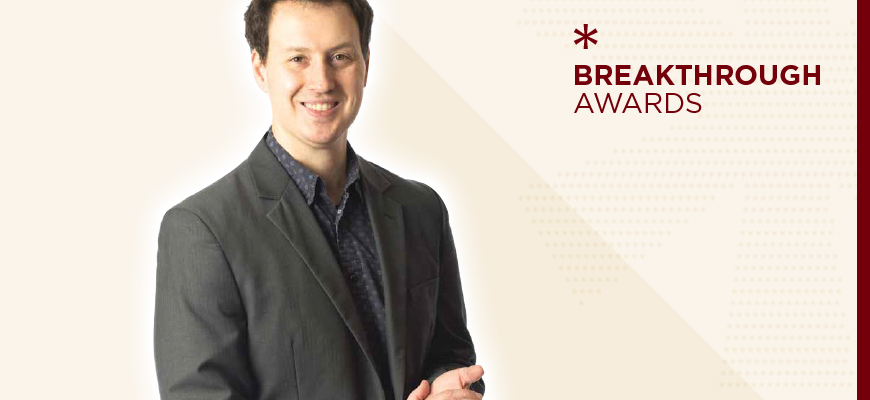
New tools for old problems
Professor develops new methods for tackling mathematical challenges
Posted on: March 30, 2018; Updated on: March 30, 2018
By Karla Turner, turnerk9@mailbox.sc.edu , 803-777-9813
Matthew Ballard would like people to be a little less afraid of math.
“Math, in itself, is a singular enterprise by which you can speak the language of the universe,” he says, “but still have room for beauty and art. Everyone lives math one way or another.”
Imagine a pure tone of music emanating from the vibrating string of a violin. The tone changes based on where the violin player’s fingers are placed. In string theory, every particle in the universe is considered a string with a unique vibration. Limits must be applied to the ends of a string to avoid quantum noise. How rich and varied can those limits, and, consequently, those tones be? This question motivates much of Ballard’s work.
“Math describes the universe, but not all math describes our universe,” says Ballard, an associate professor in the Department of Mathematics. “When you find the true statement, it ends up being the most elegant.”
An expert in the field of algebraic geometry, Ballard has built a reputation as a world leader in the field of derived categories and string theory.
“Ballard is clearly at the forefront of the new generation of algebraic geometers using categorical tools to forge new directions of research,” says Anton Schep, professor and chair of the mathematics department at Carolina.
Ballard’s work has appeared in some of the most prestigious journals in mathematics, and he has presented at workshops and conferences around the world. He was invited to be a member at the Institute for Advanced Study in Princeton in 2016-17, an honor accorded to very few mathematicians.
Math, in itself, is a singular enterprise by which you can speak the language of the universe, but still have room for beauty and art.
Matthew Ballard
“It was a joyous experience,” Ballard says, thrilled that he was able to focus entirely on his work among some of the greatest minds in mathematics. “At one point, my wife ended up in a doubles tennis match against Enrico Bombieri (a Fields medalist and professor emeritus at the IAS).”
His residence at the institute yielded breakthrough results, too. In one of four papers emerging from his stay, Ballard, with collaborators, developed a new method for approaching a decades-old, central conjecture in his field.
Ballard looks forward to watching his infant son grow, his graduate students further develop — and continuing with his research.
“Matt has given us entirely new tools to tackle old problems,” says Richard Thomas, a math professor at Imperial College in London and a fellow of the Royal Society and the American Mathematical Society. “For over 20 years no one could find a way to even begin to approach the fundamental ‘Bondal-Orlov conjecture,’ but in the last year Matt and his collaborators have found an exciting line of attack. It is a fundamentally new idea.”
Share this Story! Let friends in your social network know what you are reading about